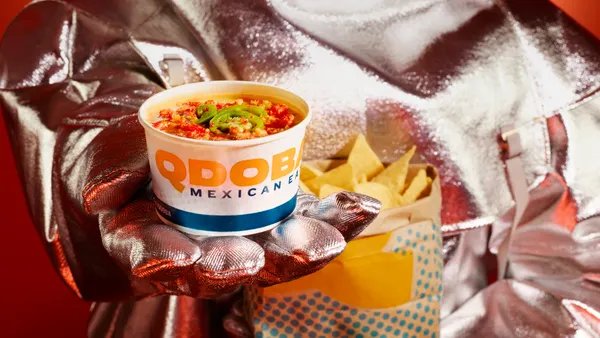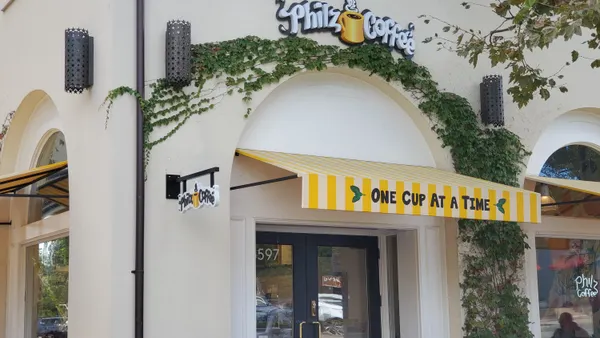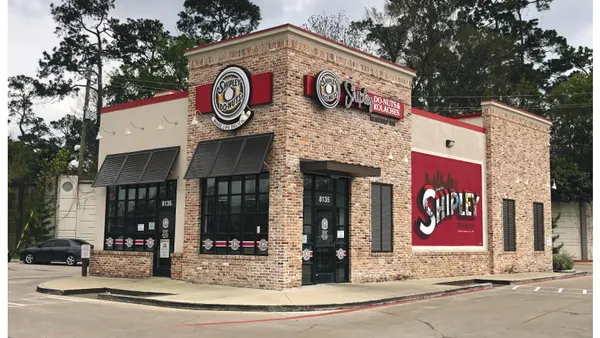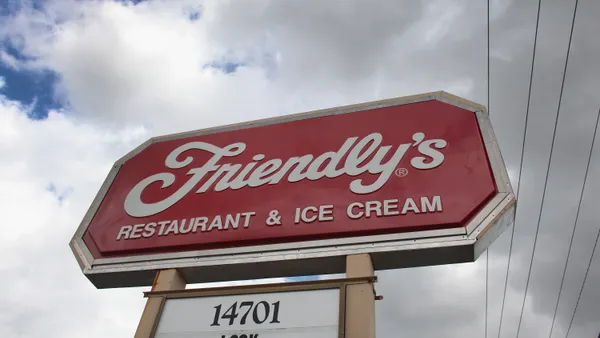Dive Brief:
- DoorDash has acquired Scotty Labs, a startup developing autonomous and remote-controlled vehicle technology, Scotty Labs announced in a blog post Tuesday.
- Terms of the sale were not disclosed, and Scotty did not share what projects it will be working on under DoorDash. Scotty CEO Tobenna Arodiogbu wrote in the blog post that the company is "focused intensely on developing core infrastructure and algorithms to ensure the safe deployment of autonomous vehicles."
- The deal comes less than a month after DoorDash's acquisition of Caviar, a delivery platform focusing on premium restaurants, from Square for $410 million.
Dive Insight:
In addition to amassing funding ahead of a rumored and long-awaited IPO, it appears DoorDash is also mining talent and technology that can launch it into the driverless delivery game. According to TechCrunch, the leading third-party delivery firm hired the co-founders of Lvl5, a tech firm that made high-resolution maps for driverless delivery through crowdsourced images and computer processing.
But TechCrunch notes that Lv15's leaders probably didn't bring any of their existing technology with them, since its portfolio of millions of images were acquired by street-level map imagery platform Mapillary at the start of the month.
These acquisitions aren't DoorDash's first forays into the world of autonomous delivery, either. The company teamed with Starship Technologies and Marble to test food delivery with robots on wheels in 2017 and partnered with GM's Cruise to experiment with self-driving cars earlier this year. Starship announced Tuesday that it plans to brings its bots to 100 colleges over the next two years.
DoorDash's recent moves to secure $400 million in funding, as well as its $600 million funding round in May that brought its valuation to $12.6 billion, could give it the capital it needs to quickly develop new autonomous technologies and bring them to market. But it has stiff competition — Postmates scored a permit to test its Serve delivery robots in San Francisco just last week. Postmates already launched the fleet of food delivery bots in Los Angeles late last year, and is working to make the vehicles more "socially intelligent" when interacting with pedestrians on the street.
It's unclear if DoorDash's primary focus in autonomous vehicles is cars or smaller, sidewalk-friendly robots. It will have serious rivals no matter which direction it takes, with Uber Eats reportedly in talks with autonomous vehicle firm Nuro to partner for food delivery. The companies are looking to launch a pilot later this year in Houston, where Nuro is already testing grocery delivery with Kroger. According to early reports, Nuro vehicles would collect food from restaurants before taking it to a centralized pickup location where human Uber drivers will finish the last mile.
Once one of these companies brings their autonomous delivery fleet to scale, it's likely to spur similar investments across the delivery space. The delivery robot market is already expected to jump from $11.9 million in 2018 to $34 million by 2024, according to a MarketsandMarkets report. The question now is which delivery company will be the first to take their technology out of the pilot phase, and if that tech will be autonomous bots or street legal vehicles. Regardless, the change will up the ante — and cost — of the delivery arms race.












